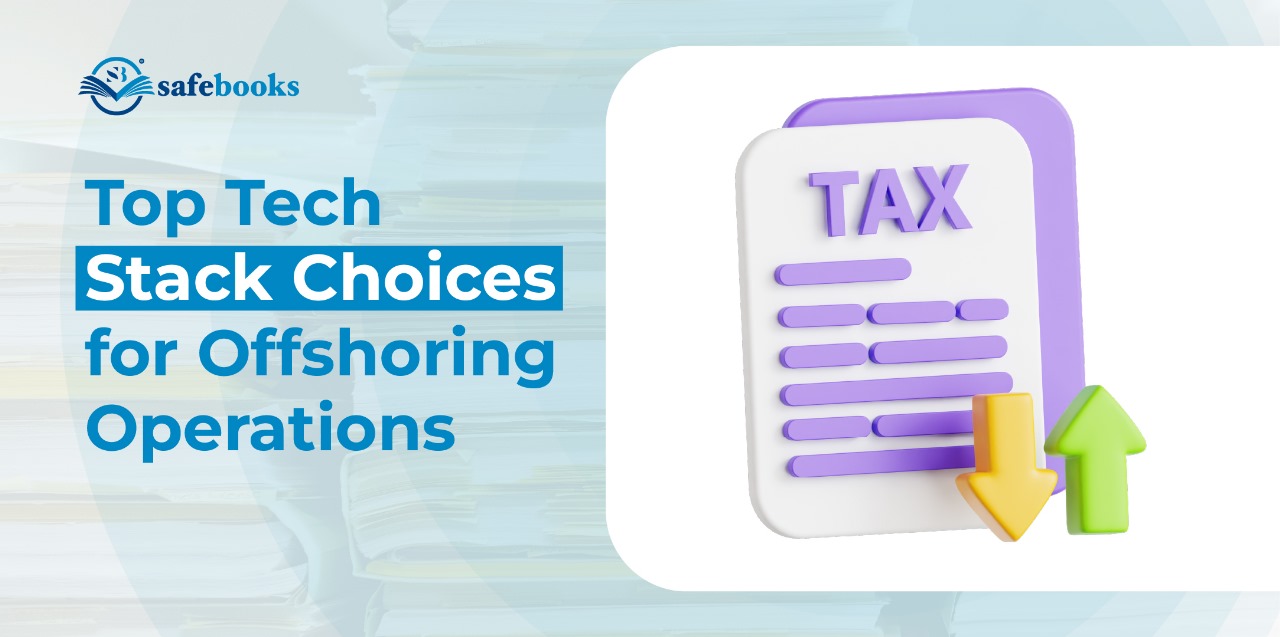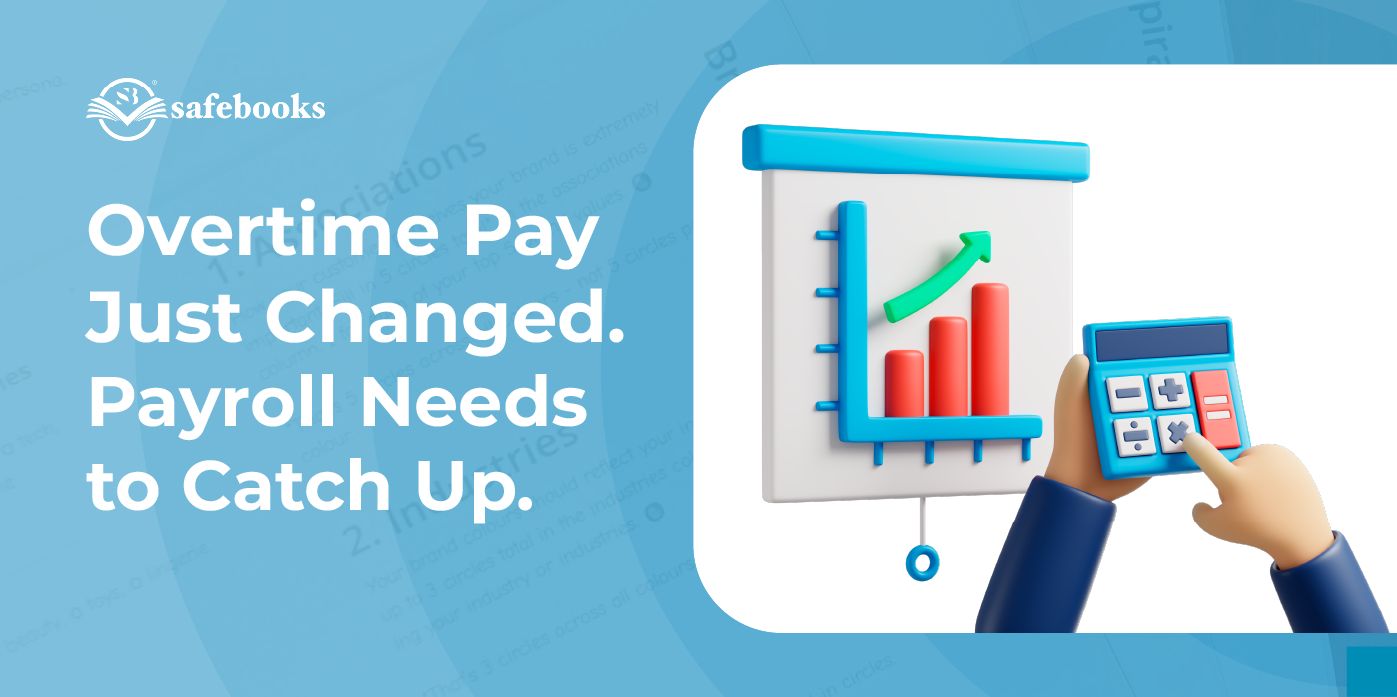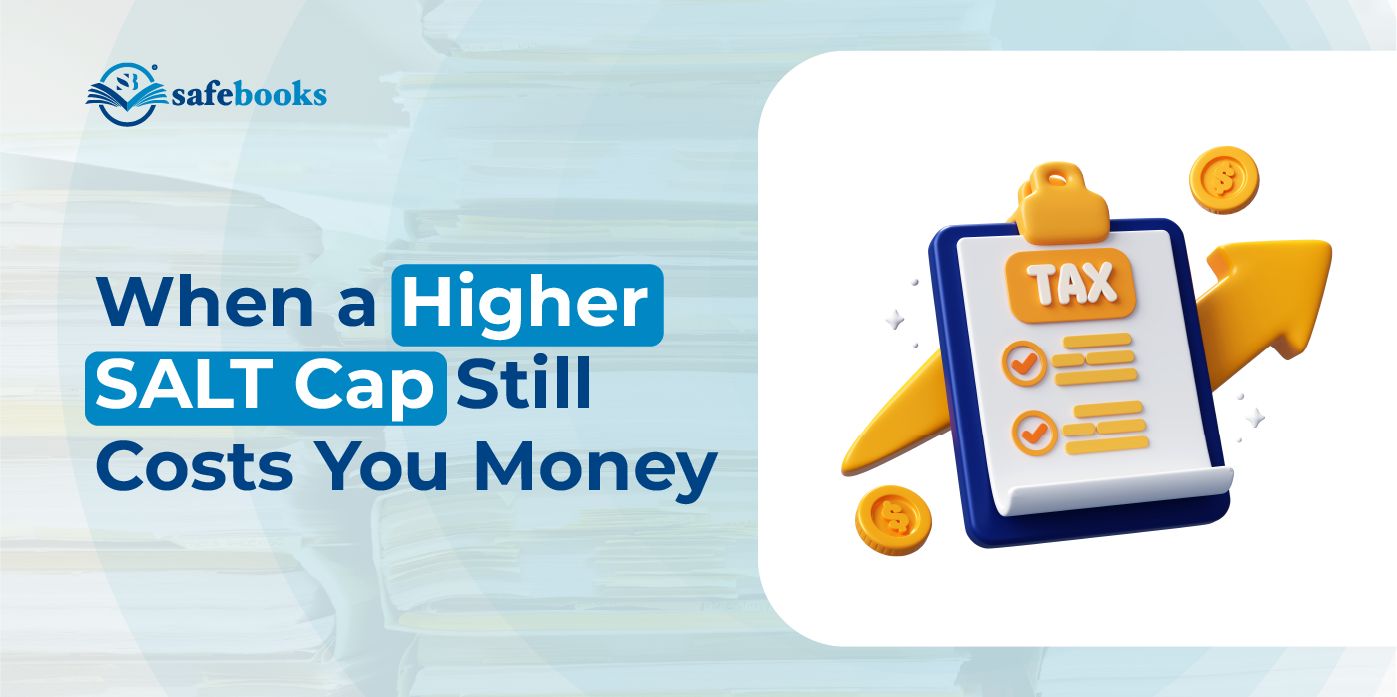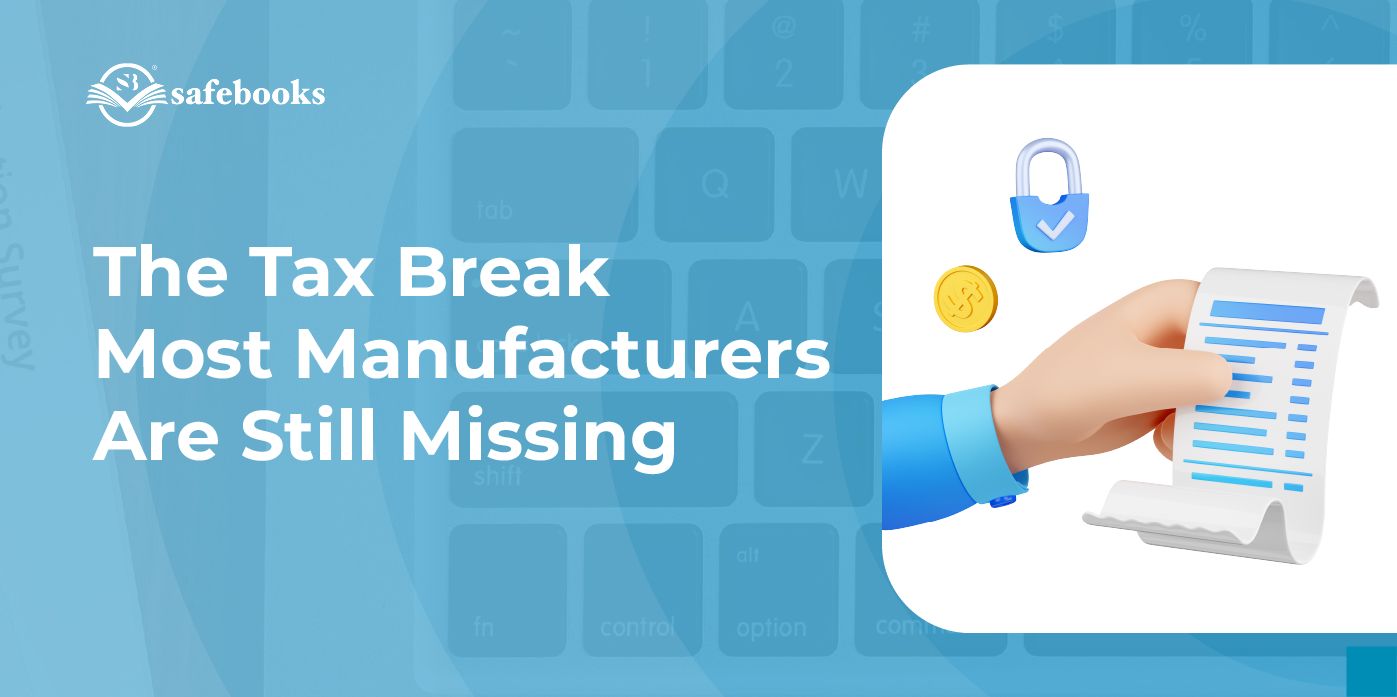When your firm decides to offshore accounting operations, the technology you choose determines how efficiently your teams collaborate across continents. A strong tech stack isn’t just about using the right apps; it’s about how those tools connect, automate, and protect your firm’s workflows.
At SafeBooks Global, we’ve seen how the right mix of tools helps CPA firms scale faster, work smarter, and maintain total compliance. Here’s how to build a reliable tech stack before you onboard your first offshore team.
Cloud Accounting Platforms That Form Your Core
Your accounting platform is the foundation of your offshore setup. Cloud software allows U.S. and India-based teams to work on the same data in real time without manual syncs or VPNs.
Top platforms preferred by accounting firms:
- QuickBooks Online – Real-time reconciliation and bank feed integration.
- Xero – Modern interface, 1,000+ integrations, and accurate reporting.
- Zoho Books – Affordable, GST-compliant, and popular among India-based teams.
- Sage and NetSuite – Ideal for firms managing multiple entities or currencies.
Integration tip: Connect your accounting tool to practice management and document storage with APIs. For example, QuickBooks → Karbon → SmartVault links transactions, tasks, and supporting files automatically.
Practice Management and Workflow Automation
Once your offshore team is onboard, consistency is everything. Tools such as Karbon, Financial Cents, and TaxDome make it easy to manage recurring tasks and monitor offshore productivity.
Benefits of automation:
- Assigns tasks automatically based on workflow templates.
- Tracks deadlines and email correspondence.
- Creates recurring checklists for month-end close, tax prep, and payroll.
- Saves up to 18 hours weekly per employee while reducing manual entry by half.
These tools also integrate seamlessly with document storage and billing systems, removing bottlenecks between teams.
Communication and Time-Zone Management
Clear communication keeps distributed teams aligned. Use Zoom or Microsoft Teams for live discussions and Slack, ClickUp or Asana for asynchronous collaboration.
Tips for managing time zones effectively:
- Schedule at least a two-hour overlap for real-time check-ins.
- Use Loom videos for walkthroughs and training.
- Automate meeting scheduling with Calendly.
- Hold daily or weekly stand-ups to review progress.
Secure and Efficient Document Management
Handling sensitive data is one of the biggest challenges in offshoring. A reliable document management system (DMS) ensures compliance and keeps files organized.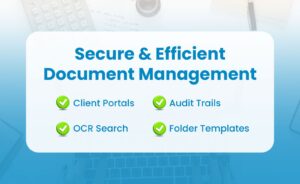
Recommended DMS tools:
- TaxDome – Practice management and document workflows in one system.
- Keeper – Ideal for managing write-ups, requests, and client collaboration.
- Canopy Tax – Strong document storage with client portals and task management.
- CCH Axcess Document – Best for firms already using the CCH ecosystem.
- Drake DDM – Integrated document management for firms using Drake.
Key features to look for:
- Client portals for secure file sharing.
- OCR search and audit trails.
- Predefined folder templates for every client.
- E-signature tools like DocuSign, Karbon eSignatures, or BoldSign for IRS-compliant Form 8879 signatures.
Tax Software Built for Offshore Teams
For most CPA firms, tax preparation is the core function supported by offshore teams. The right tax software ensures seamless workflow handoff between local and remote teams.
Top offshore-compatible tools:
- Drake Tax – Ideal for 1040, 1065, 1120, and 990 returns.
- Lacerte – Professional-grade accuracy with SmartVault integration.
- UltraTax CS – Scalable for larger CPA networks.
- ProConnect Tax – Cloud-based and built for remote collaboration.
- CCH Axcess Tax – Enterprise-level tax automation with advanced diagnostics.
- ProSeries – Popular for 1040 workflows and easy offshore-to-onshore review processes.
Offshore professionals trained in these systems can manage returns accurately while onshore reviewers handle final sign-offs and compliance.
Security, Compliance, and Data Residency
Protecting client data is non-negotiable. Choose vendors certified with SOC 2 Type II (evaluates operational security over 6 to 12 months) or ISO 27001 (93 defined security controls).
Core security layers:
- VPNs like NordLayer or Perimeter81 for encrypted access.
- Multi-factor authentication across all systems.
- Password management tools such as 1Password or Bitwarden.
- Antivirus protection and regular patch updates.
- Geo-redundant cloud backups with disaster recovery.
Ensure your cloud providers store data in secure U.S. or GDPR-compliant regions. For more details, see SafeBooks’ offshore bookkeeping security guide.
Rolling Out Your Tech Stack
Building the right tech stack takes time. It’s a gradual process that starts small and expands with structure.
Phase 1: Pilot
Begin with a limited setup, one offshore employee and one client. This allows your firm to test collaboration tools, identify integration gaps, and build trust before scaling.
Phase 2: Process
Once the pilot works well, document everything. Standard Operating Procedures (SOPs) ensure consistent results and make onboarding new offshore staff easier.
Phase 3: Scale
When workflows are stable, connect your systems using APIs. Linking tools like QuickBooks, Karbon, and SmartVault helps data flow automatically between departments without manual uploads.
Common mistakes to avoid:
- Adopting too many tools without proper training.
- Skipping version control or regular data backups.
- Neglecting SOP documentation.
- Using mismatched licenses across teams.
The key is to expand slowly, verify each integration, and ensure your offshore teams understand the systems before adding new tools.
What’s Next: The Role of AI
Artificial intelligence is reshaping accounting operations. Firms are now using AI to handle tasks that were once fully manual.
AI in accounting can:
- Categorize expenses and detect irregularities.
- Forecast cash flow and identify missed deductions.
- Draft financial summaries for review.
These tools improve accuracy, save time, and give accountants space to focus on analysis.
At SafeBooks Global, we integrate AI-powered systems into bookkeeping and tax workflows so that accountants can concentrate on decision-making instead of data entry. Combining automation with human oversight allows firms to scale efficiently while maintaining accuracy and control.
Expert Insight
“Technology is only as effective as the structure supporting it. The best-performing offshore firms are not those with the most tools, but those that document every process, connect every platform, and keep communication transparent.”
– Anshul Agrawal
Accounts Director (CA), SafeBooks Global
Turning Technology into an Advantage
A well-built tech stack is more than a collection of software. It’s the framework that turns offshore collaboration into reliable, secure, and high-performing operations. When systems connect, data flows seamlessly, and every process from reconciliation to reporting runs without friction.
That’s what true efficiency looks like for firms that offshore with intent.
At SafeBooks Global, we help accounting firms design and manage offshore ecosystems that work like an extension of their own office. From software integration to remote team training, our goal is simple: make technology your firm’s strongest ally.
Looking to build a reliable offshore setup? Talk to SafeBooks Global and get started today.
FAQS
Which software should a firm start with?
QuickBooks or Xero for accounting, and Karbon for workflow management.
How do I verify offshore provider security?
Ask for SOC 2 or ISO 27001 certifications, MFA use, and VPN documentation.
Should teams share the same licenses?
Yes. Shared licenses ensure consistency and real-time visibility.
How can time-zone challenges be managed?
Use Loom videos, Slack updates, and maintain a two-hour overlap.
How long does implementation take?
Most firms achieve full adoption within 60 to 90 days.
-

Director (CA)
Anshul is a detail-driven Chartered Accountant who works closely with CPA firms and small businesses to deliver high-impact accounting solutions. With a decade of hands-on experience in U.S. taxation, audits, and workflow optimization, he ensures every client receives consistent, quality-driven support from SafeBooks’ global team.

